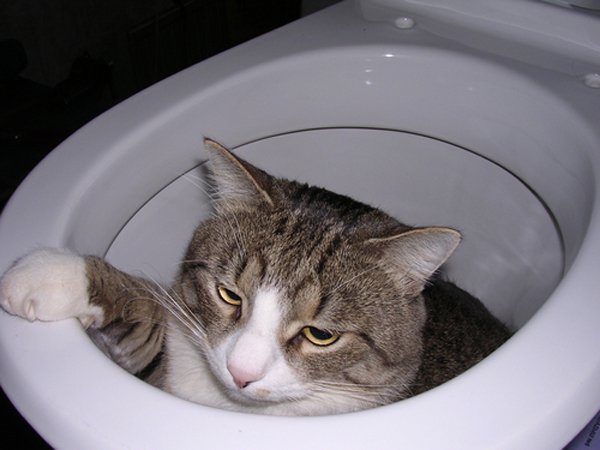Potential Risks of Flushing Cat Poop Down Your Toilet - Advice for Better Disposal
Potential Risks of Flushing Cat Poop Down Your Toilet - Advice for Better Disposal
Blog Article
Right here in the next paragraph you will discover a good deal of exceptional resources involving How to Dispose of Cat Poop and Litter Without Plastic Bags.

Introduction
As feline owners, it's vital to bear in mind just how we take care of our feline friends' waste. While it may appear hassle-free to flush feline poop down the toilet, this method can have detrimental repercussions for both the atmosphere and human wellness.
Environmental Impact
Purging pet cat poop presents unsafe microorganisms and bloodsuckers into the water system, posturing a considerable danger to water environments. These impurities can adversely affect aquatic life and concession water high quality.
Health and wellness Risks
Along with ecological worries, purging feline waste can likewise pose health risks to human beings. Pet cat feces might have Toxoplasma gondii, a bloodsucker that can trigger toxoplasmosis-- a potentially serious disease, particularly for pregnant women and individuals with damaged body immune systems.
Alternatives to Flushing
Fortunately, there are safer and more liable methods to deal with pet cat poop. Think about the adhering to options:
1. Scoop and Dispose in Trash
The most common approach of taking care of pet cat poop is to scoop it into a biodegradable bag and toss it in the garbage. Be sure to make use of a committed trash scoop and take care of the waste immediately.
2. Usage Biodegradable Litter
Select biodegradable pet cat trash made from products such as corn or wheat. These clutters are eco-friendly and can be safely thrown away in the trash.
3. Bury in the Yard
If you have a backyard, think about hiding cat waste in a marked area far from vegetable yards and water sources. Make certain to dig deep sufficient to prevent contamination of groundwater.
4. Set Up a Pet Waste Disposal System
Invest in a pet dog waste disposal system particularly designed for feline waste. These systems use enzymes to break down the waste, decreasing smell and environmental effect.
Verdict
Accountable pet dog ownership expands beyond supplying food and shelter-- it likewise includes proper waste administration. By avoiding flushing feline poop down the commode and selecting different disposal techniques, we can decrease our ecological impact and safeguard human wellness.
Why You Should Never Flush Cat Poop Down the Toilet
A rose by any other name might smell as sweet, but not all poop is created equal. Toilets, and our sewage systems, are designed for human excrement, not animal waste. It might seem like it couldn’t hurt to toss cat feces into the loo, but it’s not a good idea to flush cat poop in the toilet.
First and foremost, assuming your cat uses a litter box, any waste is going to have litter on it. And even the smallest amount of litter can wreak havoc on plumbing.
Over time, small amounts build up, filling up your septic system. Most litter sold today is clumping; it is made from a type of clay that hardens when it gets wet. Ever tried to scrape old clumps from the bottom of a litter box? You know just how cement-hard it can get!
Now imagine just a small clump of that stuck in your pipes. A simple de-clogger like Drano isn’t going to cut it. And that means it’s going to cost you big time to fix it.
Parasitic Contamination
Believe it or not, your healthy kitty may be harboring a nasty parasite. Only cats excrete Toxoplasma in their feces. Yet it rarely causes serious health issues in the cats that are infected. Most people will be fine too if infected. Only pregnant women and people with compromised immune systems are at risk. (If you’ve ever heard how women who are expecting are excused from litter cleaning duty, Toxoplasma is why.)
But other animals may have a problem if infected with the parasite. And human water treatment systems aren’t designed to handle it. As a result, the systems don’t remove the parasite before discharging wastewater into local waterways. Fish, shellfish, and other marine life — otters in particular — are susceptible to toxoplasma. If exposed, most will end up with brain damage and many will die.
Depending on the species of fish, they may end up on someone’s fish hook and, ultimately on someone’s dinner plate. If that someone has a chronic illness, they’re at risk.
Skip the Toilet Training
We know there are folks out there who like to toilet train their cats. And we give them props, it takes a lot of work. But thanks to the toxoplasma, it’s not a good idea.

We were guided to that article about How to Dispose of Cat Poop and Litter Without Plastic Bags from a good friend on another website. Are you aware of another person who is fascinated with the topic? Take a moment to share it. We love reading our article about Can You Flush Cat Poop Down The Toilet?.
Appointment Report this page